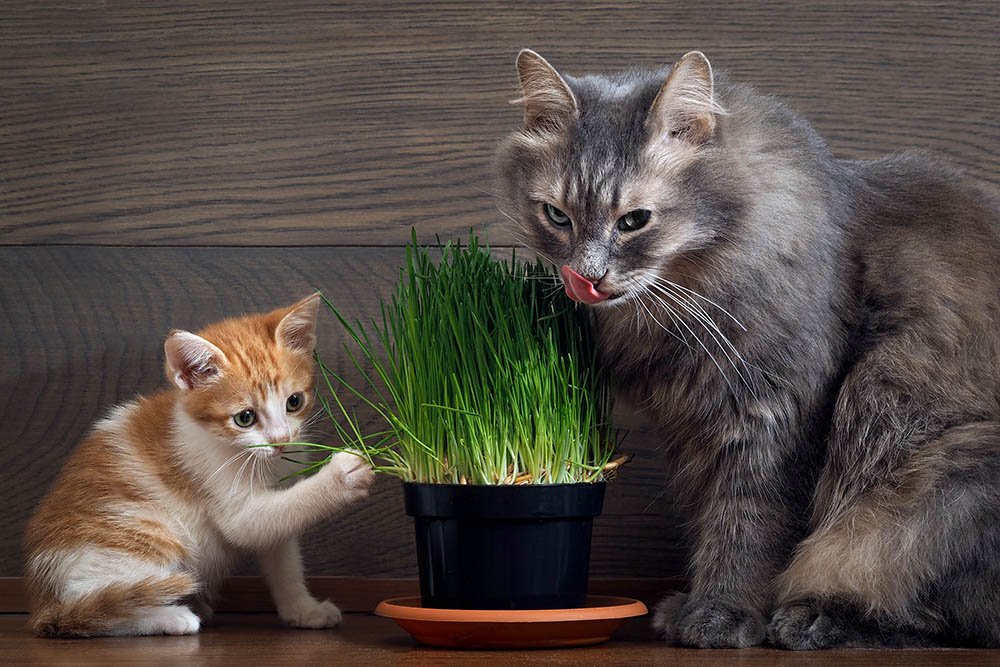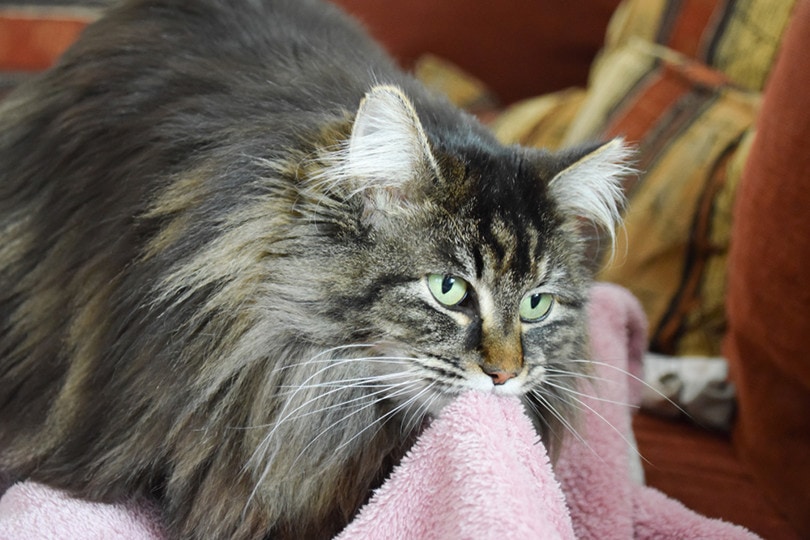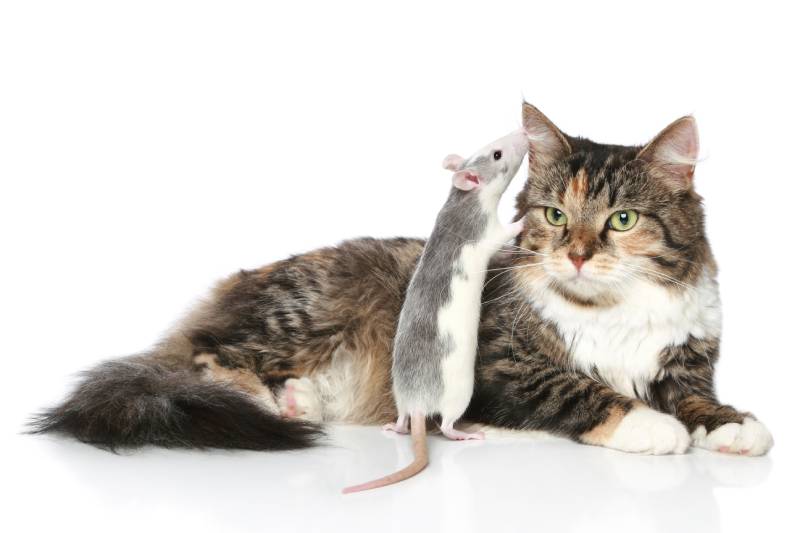Can Cats Eat Horseradish? Vet-Reviewed Facts & Safety Guide
Updated on
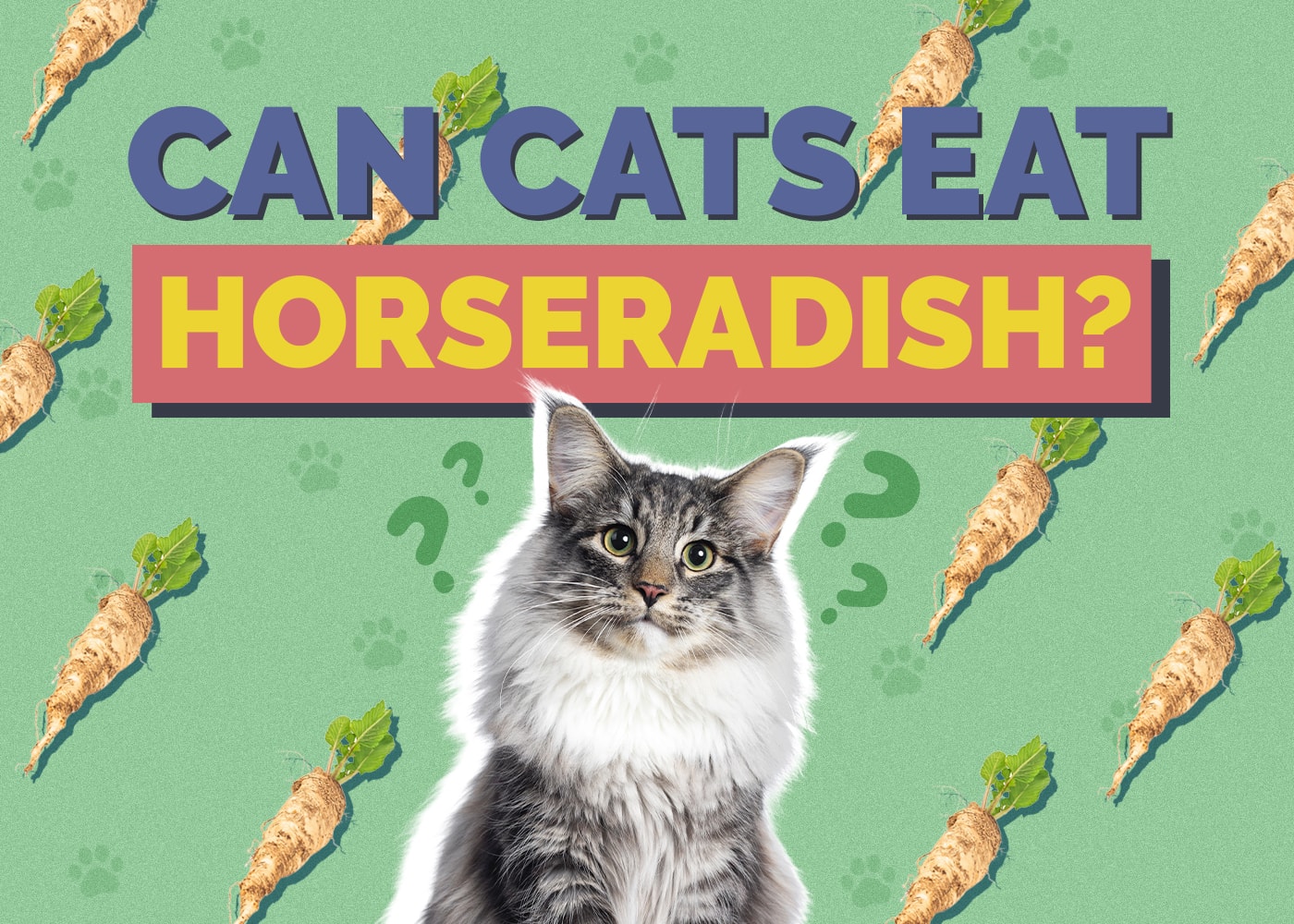
If you’ve ever eaten anything with horseradish, you know how intense it is! The idea of a cat willingly and knowingly eating any horseradish doesn’t seem very likely, but it could happen. Perhaps you’ve cooked some roast beef with a bit of horseradish sauce on top and your cat scarfed up a piece before you could react. So, is horseradish safe for cats to eat?
The short answer is horseradish isn’t toxic to cats but isn’t necessarily safe either. While cats won’t get poisoned by eating a little horseradish, it is spicy, and irritation will probably occur in their mouths and throats.
In this article, we’ll have a more detailed look at the horseradish and what cats typically (and should) eat, and what might happen when they eat some horseradish.
A Cat’s Diet
The first thing you need to know about cats is they are obligate carnivores. This means that their diet must be made up of meat. Their bodies are not optimized to digest or absorb any proper nutrients from plant life.
Cats in the wild also eat their meals at dawn and dusk, which also helps explain why your cat loves to wake you up first thing in the morning and seems more active at sunset.
Cats must be fed a commercial or homemade diet that has been specially formulated for them and is complete and balanced to contain the right amounts of nutrients cats need. It’s a good idea to become familiar with the ingredients in your cat’s food, as that will allow you to compare the different diets and to have a criteria about the quality of the diets. So, now that you know a bit more about what cats eat, we’ll take a closer look at the horseradish.
All About the Horseradish

Horseradish has been cultivated and used for thousands of years, not only in our food but for its health benefits for humans. The horseradish is a member of the genus Brassica, which includes cabbage, mustard, kale, broccoli, and wasabi.
It’s also a root vegetable that is long and white with green leaves. What makes the horseradish so tangy comes from oil released when the root is cut. This mustard oil is known as allyl isothiocyanate and makes your eyes and nose run.
It’s commonly grated and mixed with sugar, salt, vinegar, sour cream, and mayonnaise. A little bit definitely goes a long way!
But it turns out that horseradish also has some health benefits for people, as it’s low in calories and contains many minerals and glucosinolate plant compounds.
- It can help with respiratory issues: As you know, if you’ve consumed any, it’s pretty effective at clearing your sinuses, so turn to horseradish if you have a cold!
- Horseradish is antibacterial: Studies have shown that it effectively fights bacteria such as E. coli, Salmonella, and H. pylori.
- It contains antioxidants: Horseradish has been known to activate cancer-fighting enzymes and helps detoxify and eliminate free radicals in the body.
Who knew! But like with most things, is there a downside to feeding your cat horseradish.
Problems With Horseradish
The obvious issue with horseradish is the same thing that gives us some of those health benefits.
The pungency of the horseradish can irritate your nose, throat, and stomach, particularly if you have any digestion issues, especially gastroesophageal reflux, as well as irritable bowel disease or stomach ulcers.
It’s also unknown if it’s bad for children or women who are breastfeeding or pregnant (especially since it may cause abortion). Therefore, caution should be exercised, and speak to your doctor if in doubt.
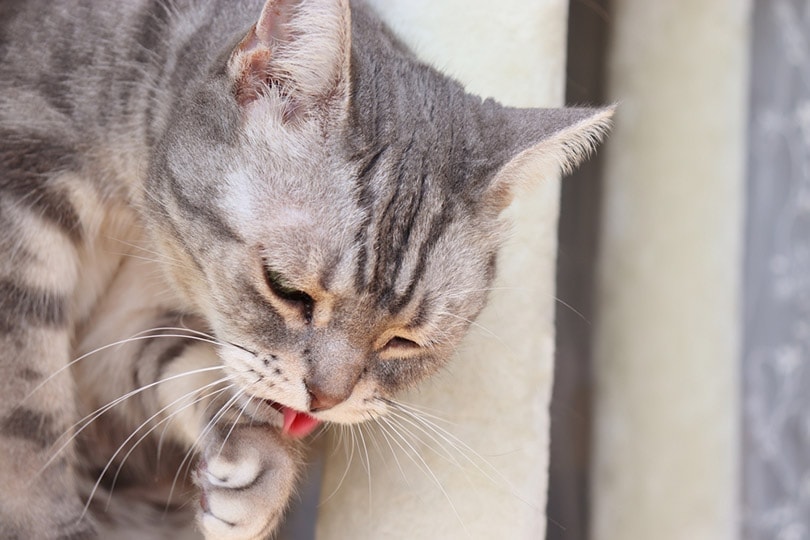
Cats and Horseradish
Horseradish can provide us with some health benefits, but it’s pretty safe to say that cats really won’t benefit from eating it. The ASPCA does not list horseradish as a toxic plant for cats, so while it technically isn’t dangerous or toxic for them, it could definitely cause some health problems.
Just like any spicy food, horseradishes could cause digestive issues in cats. This might include vomiting and diarrhea as well as irritation to the gastrointestinal tract, and if your cat is allergic to horseradish, you will definitely be looking at a trip to the vet.
Can Cats Eat Wasabi?
As mentioned earlier, wasabi falls into the same Brassica family as the horseradish. In fact, most wasabi out there is not made with authentic wasabi but is horseradish and mustard powder combined with green food coloring. The more you know! The real wasabi comes from the Wasabia japonica plant found only in Japan, which is pretty rare, which explains the fake wasabi.
So, this isn’t different from how cats will react to horseradish. Even if your cat was given real wasabi, they could have a similar reaction, although true wasabi isn’t quite as spicy as horseradish.
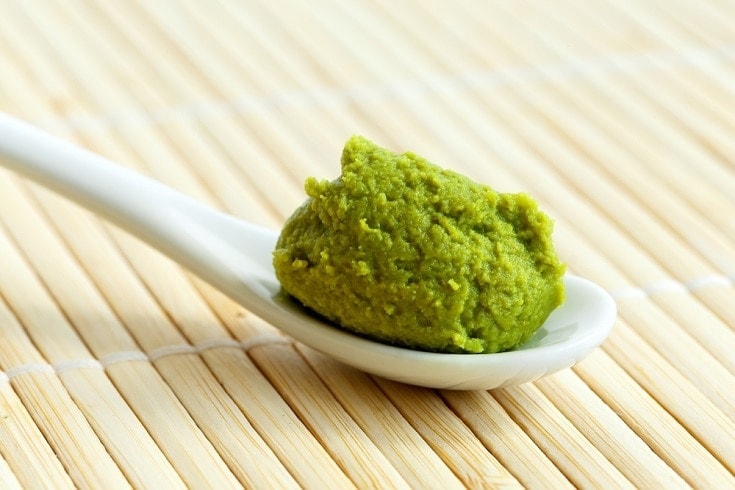
What Should You Do if Your Cat Eats Horseradish?
Just keep a very close eye on your cat and if you notice any breathing difficulties or other worrisome signs, take your cat to the vet or emergency clinic immediately. There might also be excessive itchiness and hives if your cat is allergic.
But if they only ingested a small amount, you will most definitely see your cat experience some discomfort, but more than likely, they should be fine. They might show a bit of misdirected anger towards you afterward, but otherwise unharmed.
You might notice some excessive drooling, and your cat might paw at their face. If your cat develops any diarrhea or vomiting, you should contact your veterinarian to be on the safe side.
Conclusion
So, your best bet is not to give your cat any horseradish. They thrive on a carnivore diet, and roots, vegetables, and fruit do not provide them with any of the necessary nutrients that they require. Horseradishes do not offer any benefit to cats and will likely cause discomfort and illness.
Speak to your vet if your cat seems to like the stuff. You certainly don’t want to get into the habit of giving it to your cat regularly, so when in doubt, ask for advice. The good news is that most cats won’t want anything to do with horseradish anyway, thanks to their spicy potency.
See Also:
Featured Image Credit: photocrew1, Shutterstock



